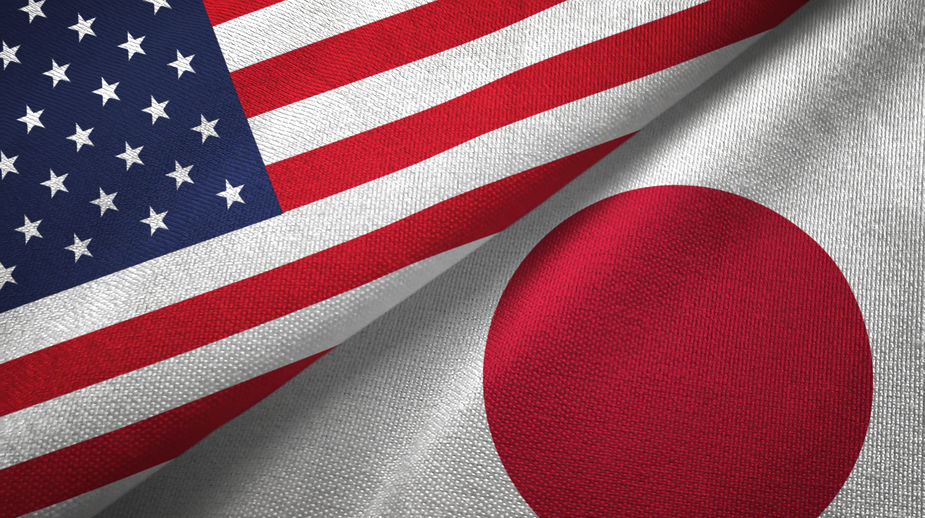Why Did the U.S. Embargo Japan?

Why Did the U.S. Embargo Japan?
Understanding the U.S. Oil Embargo Against Japan
In the years leading up to World War II, the United States and Japan were on a collision course. Japan was expanding its empire in Asia, and the United States was increasingly concerned about Japan’s growing power. In 1941, the United States imposed an oil embargo on Japan in an attempt to deter further aggression.
There were a number of reasons why the United States embargoed Japan. First, Japan was heavily dependent on imported oil. The embargo cut off Japan’s supply of oil, which was essential for its military and transportation industries. Second, the embargo was a way for the United States to pressure Japan to withdraw from China. The United States had been providing military aid to China in its war against Japan, and the embargo was seen as a way to increase the pressure on Japan to end the war. Third, the embargo was a way for the United States to show its commitment to its allies in the Pacific. The United States was allied with Great Britain and the Netherlands, both of whom had colonies in Southeast Asia that were threatened by Japan. The embargo was a way for the United States to signal to its allies that it was prepared to defend them against Japanese aggression.
The Japanese government was furious about the oil embargo. They saw it as an act of war, and they responded by launching a surprise attack on Pearl Harbor on December 7, 1941. The attack brought the United States into World War II, and it led to the defeat of Japan in 1945.
The oil embargo was a key event in the lead-up to World War II. It was a major turning point in the relationship between the United States and Japan, and it helped to shape the course of the war.
The Effects of the Embargo
The oil embargo had a severe impact on Japan’s economy. Japan was unable to import the oil it needed to power its military and transportation industries, which led to a sharp decline in production. The embargo also caused gasoline shortages and price hikes, which made it difficult for Japanese citizens to get around.
The embargo also had a psychological impact on the Japanese people. They felt that they were being strangled by the United States, and they began to view war as the only way to escape the embargo. This led to a growing sense of nationalism and militarism in Japan, which ultimately contributed to the decision to attack Pearl Harbor.
The Legacy of the Embargo
The oil embargo is a reminder of the power of economic sanctions. By cutting off Japan’s supply of oil, the United States was able to exert a great deal of pressure on the Japanese government. The embargo helped to bring about the end of the war in the Pacific, and it showed the world that the United States was willing to use its economic power to defend its interests.
The embargo also has a broader lesson for us today. It shows us that economic sanctions can be a powerful tool for diplomacy. They can be used to deter aggression, to pressure governments to change their behavior, and to protect national interests.
Did President Roosevelt deliberately provoke Japan into starting a war?
The theory that President Roosevelt deliberately provoked Japan into attacking Pearl Harbor is a controversial one. There is no doubt that Roosevelt was aware of the risks of imposing an oil embargo on Japan, and he may have calculated that Japan would be more likely to attack the United States if it was cut off from its oil supply.
Roosevelt had made a promise to the American people that the United States would not start a war with another country. If the United States had attacked Japan first, it would have been seen as an act of aggression, and it would have been difficult to justify to the American people. However, if Japan attacked the United States first, then the United States would have been able to claim that it was acting in self-defense.
Those who believe that Roosevelt was deliberately trying to provoke Japan point to a number of factors. First, Roosevelt had been planning for the possibility of war with Japan for some time. He had increased the size of the US military, and he had moved the US fleet to Hawaii. Second, Roosevelt was aware that Japan was running low on oil, and he knew that an oil embargo would put a great deal of pressure on the Japanese government. Third, Roosevelt knew that the Japanese people were deeply patriotic, and he believed that they would be more likely to support a war if they felt that they were being attacked by the United States.
There is some evidence to suggest that Roosevelt may have considered this possibility. In a speech to Congress in October 1941, Roosevelt said that if Japan attacked the United States, “the American people in their righteous might will win through to absolute victory.” This suggests that Roosevelt was prepared to go to war with Japan, but he wanted to make sure that the United States had the moral high ground.
Of course, it is impossible to know for sure whether Roosevelt deliberately provoked Japan into attacking the United States. However, the fact that he made a promise to the American people that the United States would not start a war with another country suggests that he may have considered the possibility of Japan attacking first.
It is also worth noting that Roosevelt was not the only one who thought about this possibility. Some military leaders in the United States also believed that Japan was more likely to attack if it felt that it was being cornered. For example, Admiral Harold Stark, the Chief of Naval Operations, wrote in a memo to Roosevelt in November 1941 that “the more we push Japan, the more likely she is to strike.”
Ultimately, it is impossible to know for sure what Roosevelt was thinking when he imposed the oil embargo on Japan. However, it is clear that he was aware of the risks of provoking Japan into a war. And it is possible that he may have considered the possibility of Japan attacking first in order to give the United States the moral high ground.










